A bewitching new photobook takes a walk on Japan’s wild side
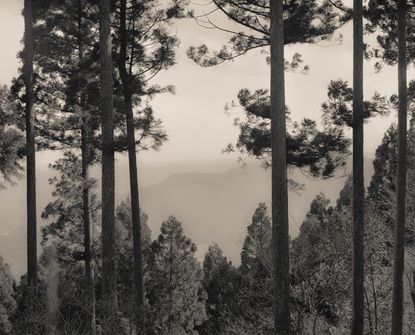
In The Vegetarian – the award-winning novel by South Korean author Han Kang – a woman slowly turns into a tree, a process that is both erotically-charged and painful. ‘Leaves are growing out of my body, roots are sprouting out of my hands; they delve down into the earth. Endlessly, endlessly... yes, I spread my legs because I wanted flowers to bloom from my crotch. I spread them wide.’ Kang’s strange story speaks not only of the position of women and their bodies, but of the particular relationship to nature in Eastern cultures.
In Japan, culture has long been intertwined with nature, perhaps no surprise on an archipelago that has been devastated by natural disasters over the centuries and still lives with the persistent threat of earthquakes, tsunamis and typhoons. The intrinsic importance of nature there has lead to the preservation of 65 per cent of the country’s landmass is still covered in forest, (in the UK, by comparison, the figure is 12 per cent).
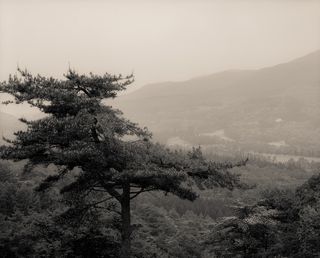
‘There is a clear understanding [in Japan] of the interconnectedness between nature and human prosperity,’ says photographer Lena C Emery, ‘unlike a lot of Western philosophy, which has through the influence of Christianity and many other factors created more of a binary disconnect, unnecessarily perpetuating this nature versus culture dichotomy.’
To wit, Emery’s luscious second monograph, Yuka & the Forest, situates us in the heart of the sacred forest. One of the most mystical and mythologised locations in Japanese folklore and tradition, the forest is also the centre of the shinto religion. What resonates first in the photographs is the profound stillness of this untouched wooded area – somewhere in a remote rural area of Japan – so removed from human activity.
The artist then introduces her fictional protagonist – Yuka – a solitary and poetic figure like Virgil in Dante’s Inferno, on a journey, apparently in search of some spiritual essence or truth, alone and contemplative. Juxtaposed with images surveying a traditional Japanese home in the country, Emery reminds us of the way nature is a force that pervades all aspects of Japanese life. From architecture and design, to the way food is prepared and flowers are arranged, nature is embedded in their being.
Still, in the narration of words and pictures, there are also hints of sadness in the emotional connection with a vanishing landscape, harmed by humankind. ‘My mind burned by a vision of a forest that once stood so tall and then was gone.’
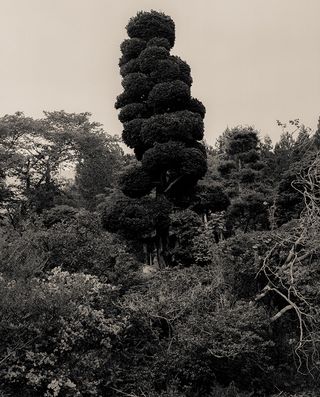
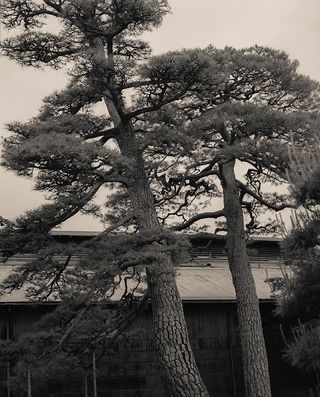

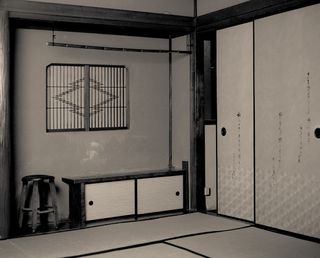
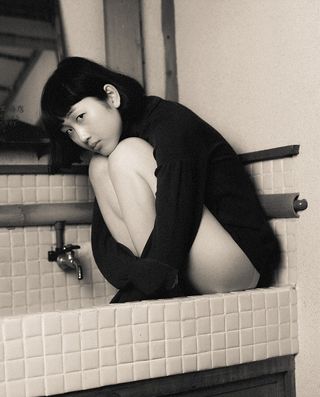
INFORMATION
Yuka & The Forest, €60, published by Art Paper Editions. Printed entirely on recycled paper, each book comes with one colour print of choice (with three options available), 10 per cent of all proceeds go to the World Wide Fund for Nature
Wallpaper* Newsletter
Receive our daily digest of inspiration, escapism and design stories from around the world direct to your inbox
Charlotte Jansen is a journalist and the author of two books on photography, Girl on Girl (2017) and Photography Now (2021). She is commissioning editor at Elephant magazine and has written on contemporary art and culture for The Guardian, the Financial Times, ELLE, the British Journal of Photography, Frieze and Artsy. Jansen is also presenter of Dior Talks podcast series, The Female Gaze.
-
 Knoll presents Willo Perron sofa at Salone del Mobile 2024, 'a piece that can stay with you forever'
Knoll presents Willo Perron sofa at Salone del Mobile 2024, 'a piece that can stay with you forever'Salone del Mobile 2024: the ‘Pillo’ sofa by Willo Perron for Knoll is the California-based designer’s first piece for the American brand, prioritising comfort and timeless usability
By Rosa Bertoli Published
-
 Nuova wants to 'bring time travel to the world' with their debut at Milan Design Week
Nuova wants to 'bring time travel to the world' with their debut at Milan Design WeekCalifornian design studio Nuova has been working behind closed doors for some of the biggest names in luxury and tech. The studio makes its public debut at Milan Design Week 2024, and take visitors on a journey back to 1971
By Laura May Todd Published
-
 Lavender Bay house opens towards the water, overlooking Sydney harbour
Lavender Bay house opens towards the water, overlooking Sydney harbourLavender Bay house by Tobias Partners is an expansive family home overlooking Sydney harbour
By Ellie Stathaki Published
-
 ‘Package Holiday 1968-1985’: a very British love affair in pictures
‘Package Holiday 1968-1985’: a very British love affair in pictures‘Package Holiday’ recalls tans, table tennis and Technicolor in Trevor Clark’s wistful snaps of sun-seeking Brits
By Caragh McKay Published
-
 ‘Art Exposed’: Julian Spalding on everything that’s wrong with the art world
‘Art Exposed’: Julian Spalding on everything that’s wrong with the art worldIn ‘Art Exposed’, Julian Spalding draws on his 40 years in the art world – as a museum director, curator, and critic – for his series of essays
By Alfred Tong Published
-
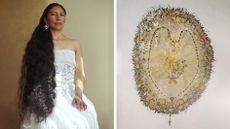 Marisol Mendez's ‘Madre’ unpicks the woven threads of Bolivian womanhood
Marisol Mendez's ‘Madre’ unpicks the woven threads of Bolivian womanhoodFrom ancestry to protest, how Marisol Mendez’s 'Madre' is rewriting the narrative of Bolivian womanhood
By Sofia de la Cruz Published
-
 Olafur Eliasson inaugurates Azabudai Hills Gallery in Tokyo
Olafur Eliasson inaugurates Azabudai Hills Gallery in TokyoOlafur Eliasson marks launch of Azabudai Hills Gallery, in Tokyo’s major new district, with a show of elemental strength
By Danielle Demetriou Published
-
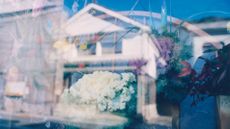 Photographer David Abrahams captures quiet moments in Japan for his new London show
Photographer David Abrahams captures quiet moments in Japan for his new London show‘Kyushu’ is a new show from photographer David Abrahams that documents his trip to a town on the Japanese island
By Mary Cleary Published
-
 Photo book explores the messy, magical mundanity of new motherhood
Photo book explores the messy, magical mundanity of new motherhood‘Sorry I Gave Birth I Disappeared But Now I’m Back’ by photographer Andi Galdi Vinko explores new motherhood in all its messy, beautiful reality
By Hannah Silver Published
-
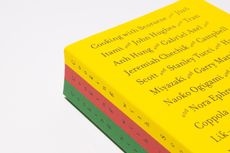 Best contemporary art books: a guide for 2023
Best contemporary art books: a guide for 2023From maverick memoirs to topical tomes, turn over a new leaf with the Wallpaper* arts desk’s pick of new releases and all-time favourite art books
By Harriet Lloyd-Smith Published
-
 The best photography books for your coffee table
The best photography books for your coffee tableFlick through, mull over and deep-dive into the best photography books on the market, from our shelves to you
By Sophie Gladstone Published